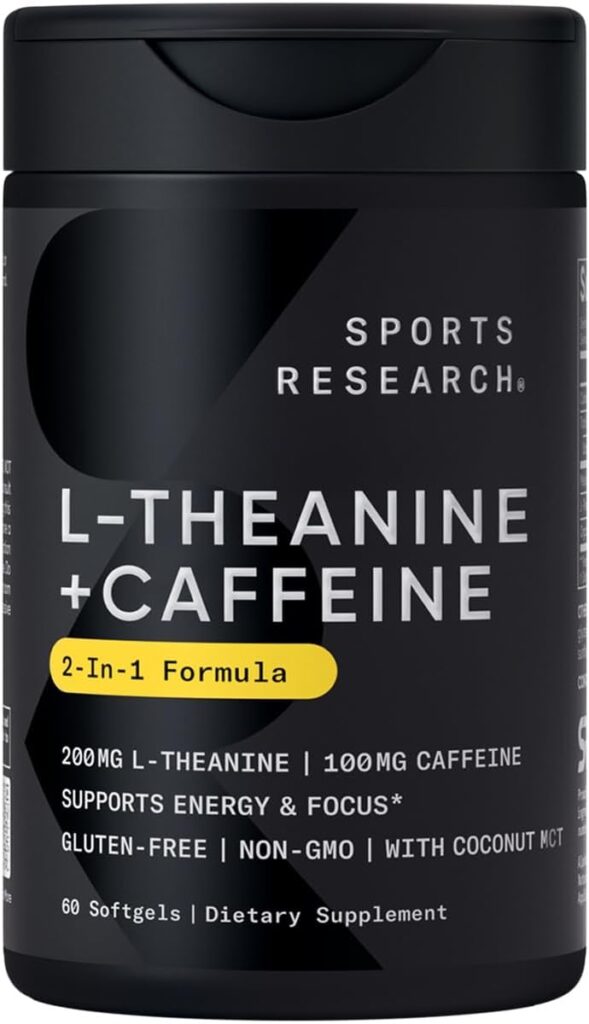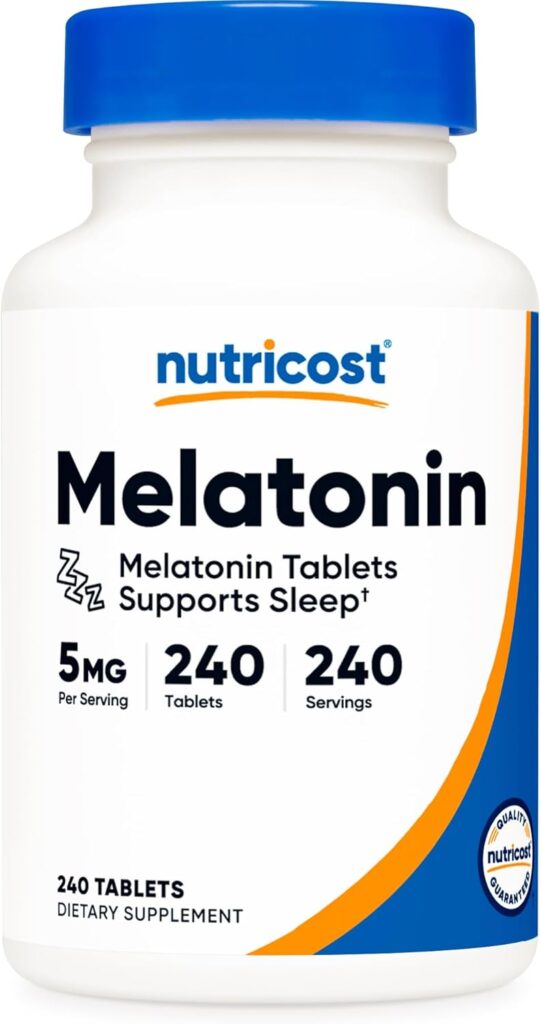As a long-time night shift worker, I’ve experienced firsthand the challenges of maintaining alertness, cognitive function, and healthy sleep patterns while working against my natural circadian rhythm. The constant struggle to stay sharp during the graveyard shift and then get restful sleep during daylight hours can be exhausting.
However, I’ve discovered that certain nootropics can be game-changers for night shift workers like us.
In this comprehensive guide, I’ll share my knowledge and experience with using nootropics to improve both on-shift performance and off-shift recovery.
Understanding the Night Shift Challenge
Working nights forces our bodies to function when they’re naturally programmed to rest. This misalignment with our circadian rhythm can lead to a host of issues:
Decreased Alertness and Cognitive Function
Night shift work often results in reduced mental acuity, slower reaction times, and difficulty concentrating. This can impact job performance and increase the risk of errors or accidents.
Sleep Disruption
Trying to sleep during the day when our bodies are primed for wakefulness can lead to shorter, less restful sleep. Many night workers struggle with insomnia or fragmented sleep patterns.
Long-Term Health Risks
Chronic circadian disruption has been linked to increased risks of cardiovascular disease, metabolic disorders, and even some types of cancer.
Mood and Mental Health Impact
The isolation of night work and ongoing sleep debt can contribute to mood disorders, anxiety, and depression in some individuals.
How Nootropics Can Help
Nootropics, also known as cognitive enhancers or smart drugs, offer potential solutions to many of the challenges faced by night shift workers. These compounds work through various mechanisms to support brain function, regulate sleep-wake cycles, and promote overall cognitive health.
Key Benefits for Night Shift Workers:
- Enhanced alertness and focus during shifts
- Improved sleep quality during daytime rest periods
- Better adaptation to circadian rhythm disruption
- Neuroprotection against long-term effects of shift work
- Mood stabilization and stress reduction
Essential Nootropics for Night Shift Workers
1. L-Theanine: The Calm Focus Enhancer
L-theanine, an amino acid found naturally in tea leaves, promotes relaxation without sedation. When combined with caffeine, it creates a synergistic effect that provides smooth, focused energy – perfect for the demands of night shift work.
How it Works:
L-theanine increases alpha brain waves, which are associated with a state of “wakeful relaxation.” It also modulates levels of neurotransmitters like GABA, dopamine, and serotonin, promoting a sense of calm focus.
Benefits for Night Shift Workers:
- Reduced anxiety and stress during shifts
- Improved focus and attention without jitters
- Enhanced sleep quality during daytime rest periods
Usage Tips:
A common approach is to mix L-theanine with caffeine in a 2:1 ratio. For example, 200mg of L-theanine with 100mg of caffeine. Amazon provides a product with both these ingredients L-Theanine + Caffeine as a stack into one softgel.

This combination can be taken at the start of your shift and repeated midway through if needed.
2. Rhodiola Rosea: The Adaptogen for Stress Resilience
Rhodiola rosea is an adaptogenic herb that helps the body resist various stressors. For night shift workers, it can be a valuable ally in combating fatigue and improving overall resilience to the stress of irregular schedules.
How it Works:
Rhodiola contains active compounds like rosavin and salidroside, which help regulate stress hormones and support the body’s stress response system. It also has neuroprotective and antioxidant properties.
Benefits for Night Shift Workers:
- Increased mental and physical stamina
- Improved mood and reduced symptoms of burnout
- Enhanced cognitive function under stress

Usage Tips:
Look for a standardized extract containing 3% rosavin and 1% salidroside. A typical dose ranges from 200-600mg per day, taken in the morning or at the start of your shift. Some users report best results when cycling Rhodiola, using it for 6-8 weeks followed by a 2-week break.
3. Bacopa Monnieri: The Memory Booster
Bacopa monnieri is an herb traditionally used in Ayurvedic medicine to enhance cognitive function. For night shift workers concerned about long-term cognitive effects, Bacopa could be a valuable addition to your nootropic regimen.
How it Works:
Bacopa contains compounds called bacosides, which have antioxidant properties and promote the growth of nerve endings in the brain. It also modulates neurotransmitters involved in learning and memory.
Benefits for Night Shift Workers:
- Improved memory formation and recall
- Enhanced cognitive processing speed
- Potential neuroprotective effects against long-term shift work

Usage Tips:
Bacopa’s effects build up over time, so consistent daily use for several weeks is recommended. A typical dose is 300-750mg of a standardized extract containing 45% bacosides. Take it with a meal containing fat for optimal absorption.
4. Phosphatidylserine: The Brain Cell Protector
Phosphatidylserine (PS) is a phospholipid that plays a crucial role in maintaining healthy brain cell membranes. It’s particularly beneficial for night shift workers because of it’s effects on stress reduction and cognitive function.
How it Works:
PS helps regulate the release of cortisol, the body’s primary stress hormone. It also supports the production and release of neurotransmitters, enhancing overall brain function.
Benefits for Night Shift Workers:
- Reduced mental fatigue during long shifts
- Improved stress management and mood stability
- Enhanced memory and cognitive flexibility

Usage Tips:
A typical dose of PS ranges from 100-400mg per day. Start with a lower dose and gradually increase as needed. Some users report best results when taking PS with a meal containing fat to improve absorption.
5. Melatonin: The Sleep Regulator
While not strictly a nootropic, melatonin plays a crucial role in regulating sleep-wake cycles and can be incredibly beneficial for night shift workers struggling with daytime sleep.
How it Works:
Melatonin is a hormone naturally produced by the pineal gland in response to darkness. It signals to the body that it’s time to sleep.
For night shift workers, supplementing with melatonin can help reset the circadian rhythm.
Benefits for Night Shift Workers:
- Improved sleep onset and quality during daytime rest periods
- Better adaptation to shifting sleep schedules
- Potential long-term health benefits because of improved sleep

Usage Tips:
Start with a low dose of 0.5-1mg taken about 30 minutes before your intended sleep time. Some individuals may need higher doses, up to 3-5mg, but it’s best to start low and increase gradually if needed. Be cautious about timing, as taking melatonin too close to your shift could lead to grogginess at work.
Implementing Your Nootropic Strategy
Now that we’ve covered some key nootropics for night shift workers, let’s discuss how to implement them effectively:
1. Start Low and Go Slow
When introducing any new nootropic, begin with the lowest effective dose. This allows you to gauge your individual response and minimize the risk of side effects.
Gradually increase the dose if needed, always staying within recommended guidelines.
2. Time Your Intake Strategically
The timing of your nootropic intake can significantly impact it’s effectiveness:
- Take alertness-promoting nootropics like caffeine+L-theanine at the start of your shift.
- Use adaptogenic herbs like Rhodiola rosea in the early part of your waking period to support overall resilience.
- Save sleep-promoting supplements like melatonin for after your shift, when you’re preparing for rest.
3. Cycle Your Nootropics
To prevent tolerance and maintain effectiveness, consider cycling your nootropics. For example:
- Use a natural stack like L-theanine + caffeine for two weeks.
- Alternate between different adaptogens like Rhodiola and Ashwagandha on a monthly basis.

4. Combine with Lifestyle Strategies
Nootropics work best when combined with good sleep hygiene and overall healthy habits:
- Create a dark, quiet sleep environment for daytime rest.
- Use blackout curtains and consider a white noise machine.
- Maintain a consistent sleep schedule, even on days off.
- Prioritize a healthy diet rich in nutrients that support brain health.
- Engage in regular exercise, but avoid intense workouts close to bedtime.
5. Monitor Your Response
Keep a journal to track how different nootropics affect your alertness, sleep quality, and overall well-being. This will help you fine-tune your approach over time.
Consider tracking metrics like:
- Energy levels throughout your shift
- Sleep duration and quality
- Mood and stress levels
- Cognitive performance (you can use online cognitive tests for this)
Potential Pitfalls and How to Avoid Them
While nootropics can be powerful tools for night shift workers, they’re not without risks. Here are some common pitfalls and strategies to avoid them:
1. Overreliance on Stimulants
Relying too heavily on stimulants like caffeine can lead to tolerance and potential side effects. Instead, focus on a balanced approach that includes non-stimulant nootropics and adaptogens.
2. Neglecting Sleep Hygiene
Nootropics should supplement, not replace, good sleep habits. Prioritize creating an optimal sleep environment and maintaining a consistent sleep schedule.
3. Ignoring Individual Differences
What works for one person may not work for another. Be prepared to experiment and adjust your approach based on your personal response and needs.
4. Drug Interactions
Some nootropics can interact with medications. Always talk to a healthcare provider before starting any new supplement regimen, especially if you’re taking prescription medications.
5. Poor Quality Control
The nootropics market is largely unregulated. Always purchase from reputable sources and consider third-party tested products to ensure quality and safety.
Advanced Strategies for Optimizing Your Nootropic Regimen
As you become more familiar with nootropics and how they affect you, you can explore more advanced strategies:
1. Nootropic Stacking
Combining different nootropics can create synergistic effects. Some popular stacks for night shift workers include:
- L-theanine for sustained, calm focus
- Bacopa monnieri + Phosphatidylserine for enhanced memory and stress reduction
- Rhodiola rosea + Ashwagandha for comprehensive adaptogenic support
2. Chronotherapy
Timing your nootropic intake to align with your circadian rhythm can enhance their effectiveness. For example:
- Taking adaptogens like Rhodiola at the start of your “day” (which might be in the evening for night shift workers)
- Using melatonin to signal sleep time when you finish your shift in the morning
3. Personalized Genomics
Genetic testing can provide insights into how your body might respond to different nootropics. Certain genetic variations can affect neurotransmitter levels, drug metabolism, and stress responses, all of which can influence the effectiveness of various nootropics.
4. Biohacking Techniques
Combining nootropics with other biohacking techniques can amplify their effects:
- Light therapy: Using blue light blocking glasses during your shift and bright light exposure after work to help regulate your circadian rhythm
- Cold therapy: Short cold showers or cryotherapy sessions to boost alertness and reduce inflammation
- Meditation: Practicing mindfulness to enhance the stress-reducing effects of adaptogens
Exercises to Optimize Your Nootropic Use
To get the most out of your nootropic regimen, consider implementing these exercises:
1. Nootropic Journal
Keep a detailed log of which nootropics you take, when you take them, and how they affect you. Include notes on:
- Energy levels throughout your shift
- Sleep quality and duration
- Mood and stress levels
- Any side effects experienced
2. Cognitive Baseline Testing
Use online cognitive tests to establish a baseline and track improvements over time. Focus on areas like:
- Reaction time
- Working memory
- Attention span
- Problem-solving skills
3. Sleep Quality Assessment
Use a sleep tracking app or device to monitor how different nootropics affect your sleep quality. Pay attention to metrics like:
- Total sleep time
- Sleep efficiency
- Time spent in different sleep stages (REM, deep sleep, etc.)
4. Shift Performance Review
Regularly assess your work performance and energy levels to fine-tune your nootropic strategy. Consider factors like:
- Productivity levels throughout your shift
- Error rates or near-misses
- Ability to handle complex tasks or emergencies
- Overall job satisfaction and stress levels
People Also Asked
Can nootropics help with shift work sleep disorder?
Certain nootropics, particularly those that support sleep quality and circadian rhythm regulation, may help manage symptoms of shift work sleep disorder. Melatonin, in particular, has shown promise in helping shift workers adjust their sleep schedules.
Are there any natural choices for night shift workers?
Yes, natural choices include caffeine combined with L-theanine, Rhodiola rosea, and Bacopa monnieri. While these may not be as potent, they can provide significant cognitive benefits without the need for a prescription.
How long does it take for nootropics to start working?
The onset of effects varies depending on the specific nootropic. Some, like caffeine can work within 30-60 minutes.
Others, like Bacopa monnieri or Rhodiola rosea, may take several weeks of consistent use to show noticeable benefits.
Can nootropics help prevent long-term health risks associated with night shift work?
While more research is needed, some nootropics with neuroprotective and anti-inflammatory properties, such as Bacopa monnieri and Rhodiola rosea, may help mitigate some of the long-term health risks associated with chronic circadian disruption.
Is it safe to mix multiple nootropics?
Many nootropics can be safely combined, but it’s crucial to research potential interactions and start with low doses when trying new combinations. Always talk to a healthcare provider before starting a new supplement regimen, especially if you’re taking other medications.
How do I choose the right nootropics for my specific night shift needs?
Choosing the right nootropics depends on your individual needs and goals. Consider factors like the length of your shifts, your primary cognitive challenges (e.g., focus, memory, stress management), and any pre-existing health conditions.
Starting with well-researched options like L-theanine or Rhodiola rosea can be a good first step.
Can nootropics completely replace good sleep habits for night shift workers?
No, nootropics should not be seen as a replacement for good sleep habits. They work best when combined with proper sleep hygiene, a consistent sleep schedule, and other healthy lifestyle practices.
Are there any nootropics specifically designed for improving daytime sleep quality?
While not specifically designed for daytime sleep, certain nootropics like melatonin, L-theanine, and magnesium have been shown to improve sleep quality and may be particularly beneficial for night shift workers trying to sleep during the day.
How do adaptogens like Rhodiola rosea help with night shift work?
Adaptogens like Rhodiola rosea help the body resist various stressors, including the stress of circadian rhythm disruption. They can improve energy levels, reduce fatigue, and enhance overall resilience, making them valuable for night shift workers.
Can nootropics help with the mood changes often experienced by night shift workers?
Yes, certain nootropics may help with mood regulation. For example, Rhodiola rosea and L-theanine have been shown to have mood-boosting and anxiety-reducing properties, which can be beneficial for night shift workers experiencing mood changes because of their work schedule.
Key Takeaways
- Nootropics can be powerful tools for night shift workers, enhancing alertness, improving sleep quality, and supporting cognitive health.
- Key nootropics for shift workers include L-theanine, Rhodiola rosea, Bacopa monnieri, and melatonin.
- Start with low doses, time your intake carefully, and consider cycling your nootropics to prevent tolerance.
- Combine nootropics with good sleep hygiene and healthy lifestyle habits for optimal results.
- Be aware of potential pitfalls and always purchase from reputable sources.
- Personalize your approach and be willing to adjust based on your individual response.
- Use tracking and self-assessment tools to continually refine your nootropic strategy.
- Consider advanced strategies like nootropic stacking and chronotherapy as you become more experienced.
- Remember that nootropics are not a replacement for good sleep habits but can be a valuable supplement to a healthy lifestyle.
- Always talk to a healthcare provider before starting any new supplement regimen, especially if you have pre-existing health conditions or are taking medications.
